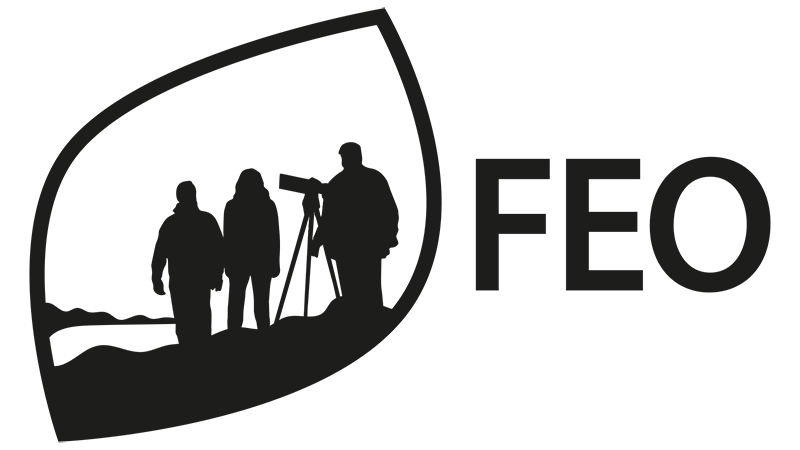Suomen ympäristökeskus (SYKE) koordinoi YK:n yleiskokouksen yhteydessä järjestetyssä tiedehuippukokouksessa tilaisuuden eDNA-menetelmien käytön standardoinnista 29.9.2022. Tilaisuudessa molekyylibiologisten seurantamenetelmien käyttöönoton mahdollisuuksista ja haasteista oli keskustelemassa laaja kansainvälinen asiantuntijajoukko. SYKE on ollut aktiivisesti kehittämässä kansallista tiekarttaa eDNA:n ja muiden molekyyliseurantamenetelmien tehokkaaseen ja luotettavaan käyttöön sekä kansallista ympäristönseurannan strategiaa. ”Tämä tapahtuma edisti tarvittavaa kansainvälistä vuoropuhelua aiheesta, joka on niin SYKElle kuin maailmanlaajuisestikin erittäin ajankohtainen ja tärkeä, kertoo tapahtuman koollekutsuja, johtaja Kristian Meissner Suomen ympäristökeskuksesta.
Tilaisuuden keynote -puheenvuoron piti Florian Leese, Professori, University Duisburg-Essen. Alla esityksen diat.
Tilaisuuden ohjelma ja nauhoitteet löytyvät alta.
Session 1: Biodiversity on seven continents. This session provide examples of the use of molecular and traditional monitoring approaches for biodiversity assessments.David Smith, Coordinator of the UN Sustainable Development Solutions Network (UNSDSN) Caribbean, University of the West Indies
- David Smith, Coordinator of the UN Sustainable Development Solutions Network (UNSDSN) Caribbean, University of the West Indies
- María Cecilia Londoño Murcia co-Chair of the Group on Earth Observations Biodiversity Observation Networks (GEO BON), Colombia Humboldt institute, Biodiversity monitoring for sustainable territories: Perspectives From Local to National scales
- John Darling, United States Environmental Protection Agency, Environmental DNA as a tool for invasive species surveillance
Session 3: An enabling global regulatory and policy environment for eDNA, including standards. This session focus on the needs for a global framework for eDNA methods, including standards.
- Deborah Paul, Chair of the Taxonomic Databases Working Group/Biodiversity Information Standards (TDWG) Katja C. Seltmann, UC Santa Barbara, Pier Luigi Buttigieg, GEOMAR Helmholtz Institute for Ocean Research, Jose Alonso, Naturalis Biodiversity Center, Standards bridge sciences, operations, and policy
- John Simaika, IHE Delft, Towards globally accepted protocols for freshwater ecosystem assessment
- Anne Muigai, Jomo Kenyatta University and Ntanganedzeni Mapholi, University of South Africa, AfricaPB efforts to utililise eDNA methods to improve future of biodiversity across Africa
Session 5: Recommendation for the UN summit of the future. This session features important lessons learned and topics around biodiversity assessment and the uptake of novel method into routine use that need to be addressed by the UN summit of the future in 2023.
- Marina von Weissenberg, Senior Ministerial Adviser, Biodiversity CBD NFP and Chief negotiater for Finland, Key messages, tools and measures for a successful UN Biodiversity Framework 2030: Recommendations for the Future
- Petteri Vihervaara, Veera Norros and Tiina Laamanen, Finnish Environment institute, Needs for harmonization of biodiversity monitoring
Session 2: eDNA and molecular approaches. This session explores the application of molecular tools for biodiversity assessment and the necessity for commonly agreed upon standards.
- Saara Suominen, OBIS, IOC-UNESCO, Global biodiversity monitoring made possible by eDNA data sharing,
- Kat Bruce Founder, NatureMetrics (eBioAtlas), Scaling up eDNA
- Gernot Segelbacher, Professor, University Freiburg, co-chair IUCN SSC Conservation Genetics Specialist Group, Monitoring biodiversity – challenges of the genetic toolbox
Session 4: How and why this matters. This session explores the larger consequences of accurate molecular biodiversity assessments.
- Eeva Furman , Finland’s Prime Minister’s office, Member of the Independent Group of Scientists who prepared the UN Global Sustainable Development report, Title: Upscaling biodiversity identification – why does it matter to transformative change to biodiversity?
- Maria Julia Oliva, Head of Policy, UNEP-WCMC Measuring biodiversity – Key lessons from our work
- Marine Robuchon, Gregoire Dubois, Arwyn Jones, Teresa Lettieri and Ana Cristina Cardoso Joint Research Centre, EU commission Knowledge Centre for Biodiversity, Measuring biodiversity with molecular tools: current work and perspectives from the European Comission’s Joint Research Centre
Recommendations for UNGA77, G20, COP 27 Interactive session
